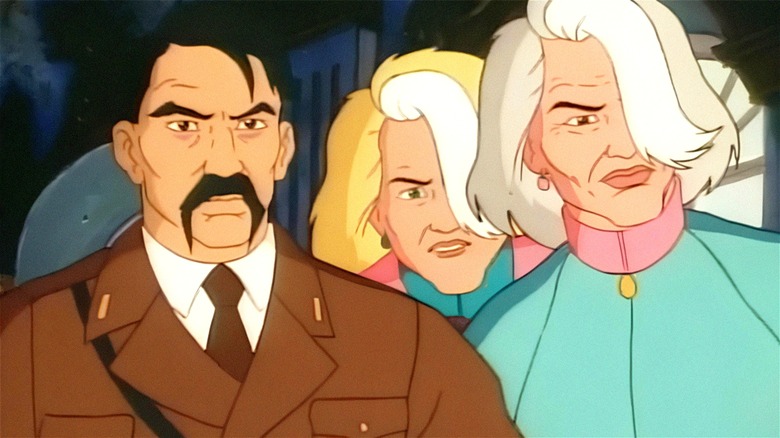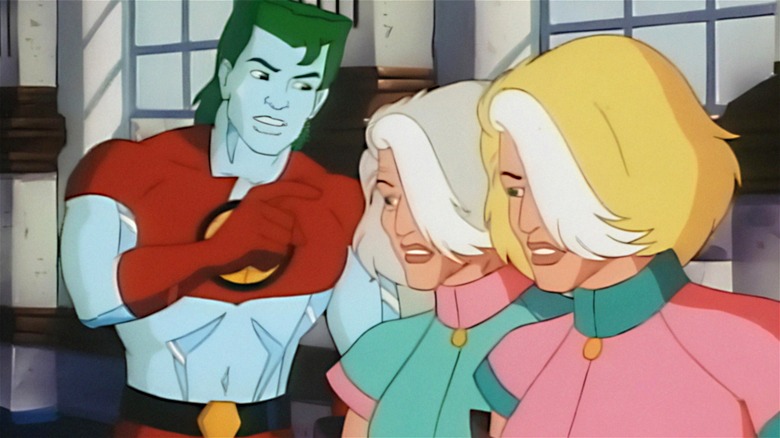Captain Planet's Fight With Adolf Hitler Might Crush Your Childhood
A fair number of '90s cartoons have not aged well. This is perhaps a byproduct of the fact they were oftentimes treated as disposable entertainment and could revolve around an idea as simple as teaching kids about recycling, as was the case with "Captain Planet." However, the lack of attention paid to even some of the best '90s cartoons could result in some pretty off-the-wall storytelling. For instance, in one "Captain Planet" episode, the titular eco-hero fights none other than Adolf Hitler after traveling back in time.
This takes place in Season 6, Episode 6, titled "A Good Bomb Is Hard to Find." Kicking off a series of events that culminate in its improbable conclusion, recurring villain and scientific genius Doctor Blight (voiced by Mary Kay Bergman) invents a time machine and contacts herself in the future. The two Blights team up to amass a stockpile of nuclear material they assemble into atomic weaponry. Then they take their proprietary atom bombs to the past and sell them at an auction attended by European leaders. Their venue of choice is Hitler's base at Kransberg Castle, and the Nazi dictator soon hijacks the auction, forcibly claiming the bombs as his own.
When Captain Planet (David Coburn) enters the fray, Hitler triggers his weakness to pollution — the pure hate that Hitler exudes, it turns out, affects the hero in the same negative way as environmental degradation. Yes, Hitler's level of pure evil is as damaging to the superhero as pollution. Nevertheless, Captain Planet overcomes the handicap and saves the past from nuclear devastation.
Each episode of Captain Planet was written to reflect a real world issue
Entertainment wasn't necessarily the principal goal of "Captain Planet." In fact, executive producer Barbara Pyle told environmental magazine Grist that the show explicitly aimed to inspire a new generation of environmentalists. To do so, it tackled topics that affected people in real life. "People ask me, 'how on earth did you make all this stuff up?'" she said. "Well, we didn't make it up. Each episode of the show was based on a real issue in a real culture someplace."
Hitler's introduction in "A Good Bomb Is Hard to Find" is a more literal manifestation of this philosophy than the events of most other episodes — even if his signature toothbrush mustache extends past his chin, despite all other aspects of the character reflecting the dictator's actual history. Nuclear proliferation seems to be the real-world issue this episode is tackling thematically, and the dictator is not necessarily the literal Hitler but perhaps an excessively on-the-nose stand-in for the sort of despot into whose hands nuclear technology must not fall. This showcased just how frightening the technology was, particularly to children a generation removed from the daily fear of nuclear war. The intent, then, seems to have been for kids to worry about the notion of a Hitler with atomic weaponry and become anti-nuclear bomb activists later in life — a far cry from the relatively "safe" subject matter the show typically tackled. Its legacy, however, seems to be an episode of a cartoon that a generation of '90s kids vaguely recall incorporating one of history's most notorious criminals into its normal pro-environment message.

